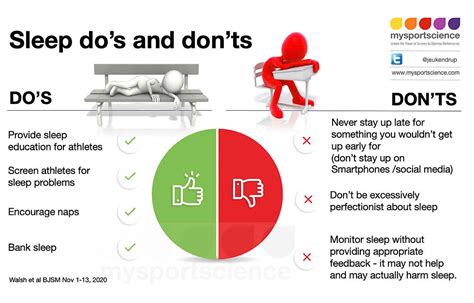How to optimize deep sleep for peak recovery & male vitality?

The Crucial Role of Deep Sleep for Overall Well-being
Deep sleep, or slow-wave sleep (SWS), is the most restorative stage of our sleep cycle, playing a foundational role in both physical and mental recovery. During this critical phase, your brain waves slow considerably, and your body actively repairs itself, consolidating memories, processing emotions, and clearing metabolic waste. It’s not just about getting enough hours; the quality and depth of your sleep directly impact your energy levels, cognitive function, and resilience against stress.
For men, optimizing deep sleep extends beyond general well-being; it’s intricately linked to peak physical performance, robust immune function, and mental clarity. Neglecting this vital stage can lead to a cascade of negative effects, including reduced athletic recovery, impaired decision-making, and a persistent feeling of fatigue that no amount of caffeine can truly overcome.

Deep Sleep and Male Vitality: The Hormonal Connection
One of the most significant impacts of deep sleep for male vitality lies in its influence on hormone regulation. It’s during deep sleep that the body releases a significant portion of its daily Human Growth Hormone (HGH) and plays a crucial role in the production of testosterone. These hormones are indispensable for muscle repair and growth, fat metabolism, bone density, and maintaining a healthy libido.
Chronic sleep deprivation, particularly a lack of deep sleep, has been consistently linked to lower testosterone levels. This reduction can manifest as decreased energy, reduced muscle mass, increased body fat, a flagging sex drive, and even mood disturbances. Prioritizing deep sleep isn’t just about feeling rested; it’s about safeguarding your hormonal balance and, by extension, your masculinity and vitality.

Practical Strategies to Optimize Your Deep Sleep
Achieving optimal deep sleep isn’t always intuitive, but a combination of consistent habits and a conducive environment can make a profound difference. Here’s how to set yourself up for success:
1. Create an Ideal Sleep Environment
- Darkness is Key: Ensure your bedroom is as dark as possible. Block out all light sources, including streetlights and electronic device LEDs. Melatonin production, crucial for sleep, is inhibited by light.
- Cool Temperature: The optimal sleep temperature is typically between 60-67°F (15-19°C). A cooler room signals your body that it’s time to rest.
- Quiet & Calm: Minimize noise distractions with earplugs, white noise machines, or soundproofing. Ensure your mattress and pillows are comfortable and supportive.

2. Establish a Consistent Sleep Schedule
Go to bed and wake up at roughly the same time every day, even on weekends. This regularity helps to regulate your body’s natural circadian rhythm, making it easier to fall asleep and wake up feeling refreshed. Your body thrives on routine.
3. Mind Your Diet and Lifestyle
- Watch Caffeine & Alcohol: Avoid caffeine late in the day (typically after noon) and limit alcohol consumption, especially close to bedtime. While alcohol might initially make you feel drowsy, it disrupts deep sleep and REM cycles.
- Eat Wisely: Avoid heavy meals close to bedtime, which can cause indigestion. Opt for a light, easily digestible snack if you’re hungry.
- Exercise Smart: Regular physical activity improves sleep quality, but avoid intense workouts too close to bedtime as they can be stimulating. Finish strenuous exercise at least 3-4 hours before sleep.
4. Embrace Stress Reduction Techniques
High stress levels are a major impediment to deep sleep. Implement a calming pre-sleep routine to wind down:
- Meditation & Deep Breathing: Even 10-15 minutes of mindfulness meditation or slow, deep breathing can significantly lower cortisol levels.
- Reading & Relaxation: Read a physical book, take a warm bath, or listen to calming music. Avoid screens (phones, tablets, TVs) at least an hour before bed, as blue light interferes with melatonin production.

5. Consider Targeted Supplements (Consult a Professional)
While lifestyle changes are paramount, certain supplements can support sleep for some individuals. Always consult with a healthcare professional before starting any new supplement regimen:
- Magnesium: Known for its muscle-relaxing and calming properties, magnesium can aid sleep quality.
- ZMA: A combination of Zinc, Magnesium, and Vitamin B6, often marketed for male hormone support and sleep.
- Melatonin: Useful for resetting circadian rhythms, especially when traveling or for shift workers, but should be used short-term.

Reaping the Rewards: A Life Transformed
Optimizing deep sleep is not a quick fix but a sustainable lifestyle choice that offers profound benefits for male vitality and overall well-being. By consistently applying these strategies, you’ll not only enhance your physical recovery and muscle growth but also boost your testosterone levels, sharpen your cognitive function, improve your mood, and cultivate a robust sense of energy and drive. Invest in your deep sleep, and you invest in a more vibrant, resilient, and vital you.
Embrace the power of quality rest, and unlock your full potential for peak recovery and enduring male vitality. Your body and mind will thank you.









